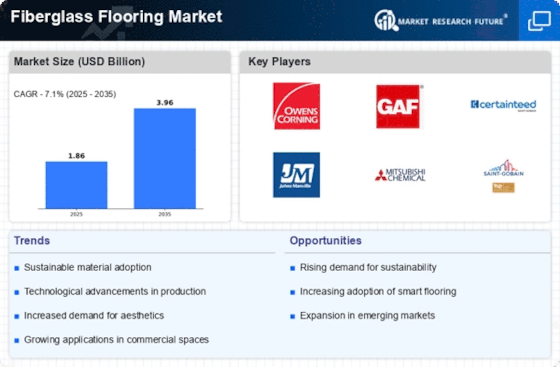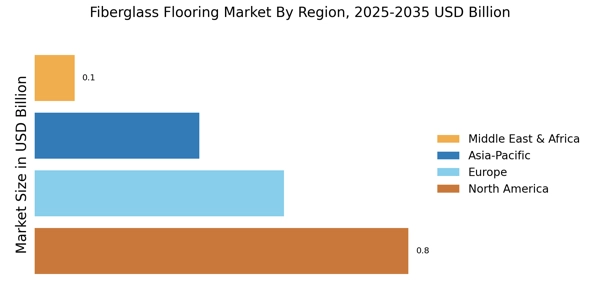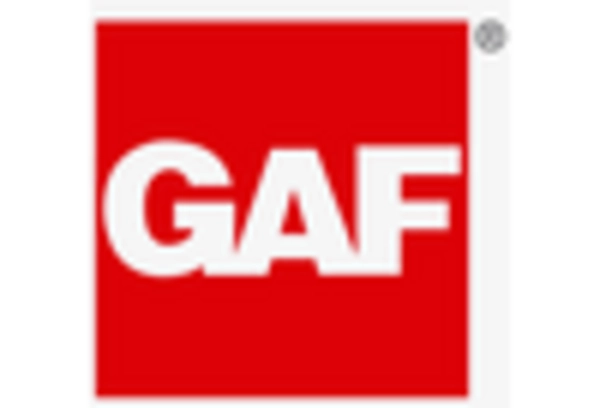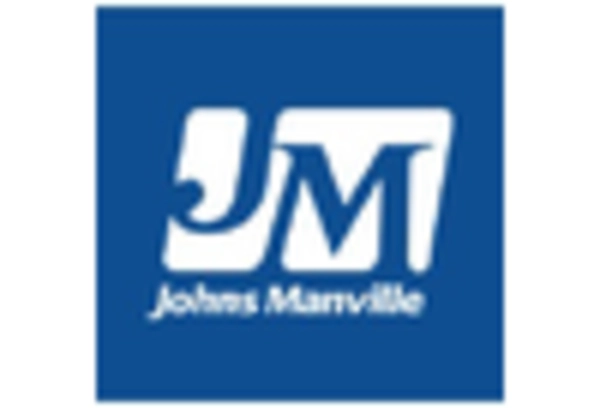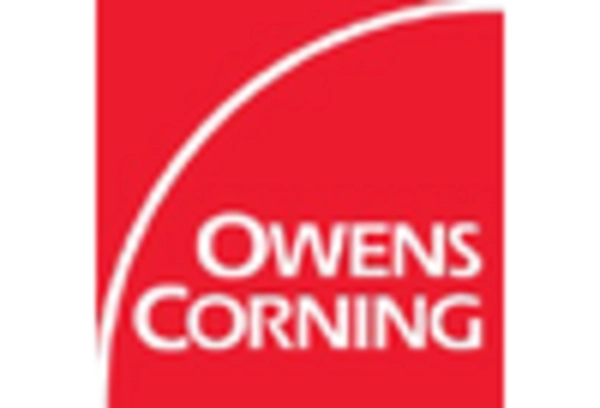Cost-Effectiveness
Cost-effectiveness is a crucial factor influencing the Fiberglass Flooring Market. Compared to traditional flooring materials, fiberglass flooring often presents a more economical option, particularly in terms of installation and maintenance costs. The longevity and durability of fiberglass flooring reduce the need for frequent replacements, which can lead to significant savings over time. Market analysis indicates that the total cost of ownership for fiberglass flooring is lower than that of many alternatives, making it an appealing choice for budget-conscious consumers and businesses. This financial advantage is likely to drive further interest in the Fiberglass Flooring Market.
Regulatory Support
Regulatory support for sustainable building practices is emerging as a key driver for the Fiberglass Flooring Market. Governments and regulatory bodies are increasingly implementing standards and incentives that promote the use of eco-friendly materials in construction. These regulations often favor products that contribute to energy efficiency and reduced carbon footprints. As a result, fiberglass flooring, which meets many of these criteria, stands to benefit from such supportive policies. The Fiberglass Flooring Market may experience accelerated growth as more builders seek to comply with these regulations and capitalize on available incentives.
Diverse Application Areas
The versatility of fiberglass flooring is a notable driver for the Fiberglass Flooring Market. This type of flooring is suitable for a wide range of applications, including residential, commercial, and industrial settings. Its resistance to moisture, chemicals, and heavy foot traffic makes it an ideal choice for various environments, from hospitals to warehouses. Market data indicates that the commercial segment is expected to account for a substantial share of the fiberglass flooring market, driven by the need for durable and low-maintenance flooring solutions. This diverse applicability suggests that the Fiberglass Flooring Market is well-positioned for growth across multiple sectors.
Sustainability Initiatives
The increasing emphasis on sustainability within the construction sector appears to be a pivotal driver for the Fiberglass Flooring Market. As environmental concerns gain traction, builders and consumers alike are gravitating towards materials that offer lower environmental impact. Fiberglass flooring, known for its durability and recyclability, aligns well with these sustainability initiatives. In fact, the market for sustainable flooring solutions is projected to grow at a compound annual growth rate of approximately 10% over the next five years. This trend suggests that the Fiberglass Flooring Market could see a significant uptick in demand as more stakeholders prioritize eco-friendly options.
Technological Advancements
Technological advancements in manufacturing processes are likely to propel the Fiberglass Flooring Market forward. Innovations such as improved resin formulations and enhanced production techniques contribute to the overall quality and performance of fiberglass flooring. These advancements not only increase the lifespan of the flooring but also reduce production costs, making it a more attractive option for builders and consumers. The integration of smart technologies, such as sensors for monitoring wear and tear, may further enhance the appeal of fiberglass flooring. As a result, the Fiberglass Flooring Market could experience a surge in adoption rates, particularly in commercial applications.


